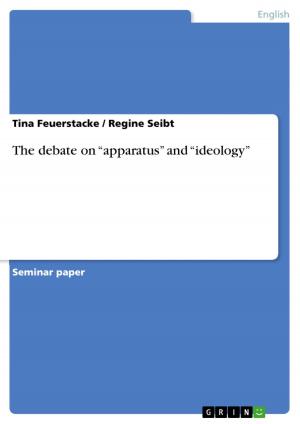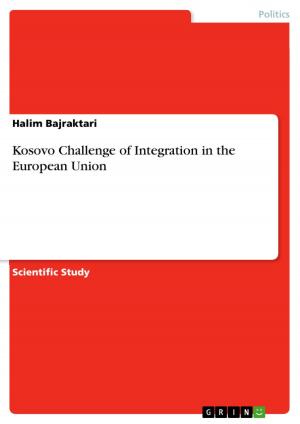The road to war: Manufacturing public opinion in support of U.S. foreign policy goals
Nonfiction, Social & Cultural Studies, Social Science, Sociology| Author: | Rena Kim Bivens | ISBN: | 9783638900669 |
| Publisher: | GRIN Publishing | Publication: | January 28, 2008 |
| Imprint: | GRIN Publishing | Language: | English |
| Author: | Rena Kim Bivens |
| ISBN: | 9783638900669 |
| Publisher: | GRIN Publishing |
| Publication: | January 28, 2008 |
| Imprint: | GRIN Publishing |
| Language: | English |
Master's Thesis from the year 2004 in the subject Sociology - Political Sociology, Majorities, Minorities, grade: Distinction, The University of Western Ontario (Department of Sociology), 181 entries in the bibliography, language: English, abstract: The purpose of this thesis is to discover the extent to which governments possess the capacity to influence public opinion. It argues that the United States government initiated and directed a social control campaign during both the 1991 and 2003 wars with Iraq in order to mobilize public opinion in support of their foreign policy objectives. To this end, the United States government, in conjunction with powerful interest groups, is seen to possess the capacity to influence the content of the mass media in order to disseminate and promote justifications for war that contain emotion-provoking elements. During both wars, the justifications presented to the American public produced a negative emotional response to Saddam Hussein and in the process created a foreign threat that appeared to be immediate. It is concluded that these social control campaigns restricted the American public's access to reliable information, thereby obstructing their ability to participate in their nation's political process.
Master's Thesis from the year 2004 in the subject Sociology - Political Sociology, Majorities, Minorities, grade: Distinction, The University of Western Ontario (Department of Sociology), 181 entries in the bibliography, language: English, abstract: The purpose of this thesis is to discover the extent to which governments possess the capacity to influence public opinion. It argues that the United States government initiated and directed a social control campaign during both the 1991 and 2003 wars with Iraq in order to mobilize public opinion in support of their foreign policy objectives. To this end, the United States government, in conjunction with powerful interest groups, is seen to possess the capacity to influence the content of the mass media in order to disseminate and promote justifications for war that contain emotion-provoking elements. During both wars, the justifications presented to the American public produced a negative emotional response to Saddam Hussein and in the process created a foreign threat that appeared to be immediate. It is concluded that these social control campaigns restricted the American public's access to reliable information, thereby obstructing their ability to participate in their nation's political process.















